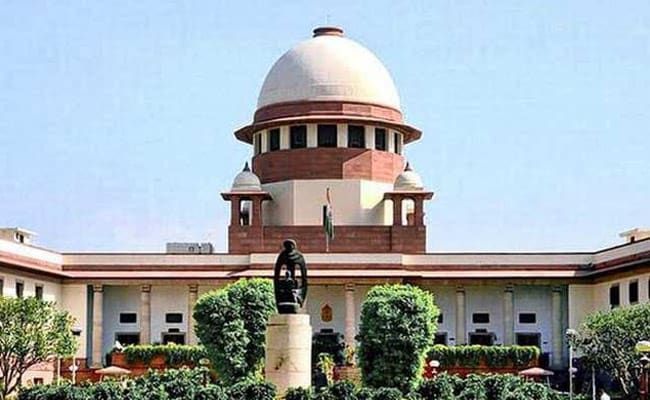In 2013, the Supreme Court referred to the Central Bureau of Investigation ("CBI") as "a caged parrot speaking in its master's voice". A decade later, the parrots (now unleashed) called central agencies not only speak in their master's voice, but have also begun to powerfully attack anyone does not obey their master. The CBI, IT, ED - these agencies, instead of standing upright as an institution, have been reduced to political tools at the hands of the central government to silence any voices of opposition.
Of these, the Enforcement Directorate (ED) has proven to have been weaponized by the BJP in recent times. While agencies like the CBI may still require consent of the state governments to conduct their investigations, the powers of the ED under the Prevention of Money Laundering Act, 2002 (PMLA) make it virtually impossible to maintain the fairness and transparency of the process. The recent Supreme Court verdict has worked as a shot in the arm for them to go all out with a vengeance.

Money laundering arrests are "not arbitrary", the Supreme Court had said
In response to my question in the Rajya Sabha, the Ministry of Finance informed the House on July 26, 2022 that in the first nine years of the legislation that was upheld by the Supreme Court, 112 searches were carried out. In sharp contrast, as many as 3,010 searches have been conducted in the last eight years since the BJP came into power in 2014. While the number of searches have increased by 27 times, the conviction rate remains low: of the total searches carried out since 2014-15, only 23 persons have been convicted.
I am reminded of Franz Kafka's question, "What comes before the law?" The current political scenario in India seems to have an answer to offer - before the law, comes the punishment. The low conviction rate suggests that the process is in itself the punishment. More often than not, the objective of framing charges based on partially-conducted investigations and ill-verified facts is to merely harass opponents and settle political scores. By the time investigation is completed, the damage is already done. The reputation of the dissenter is maligned and the message of tyrannical superiority is conveyed.
In the recent political developments in Maharashtra, many of the MLAs/MPs that chose to defect did so because they had serious ED charges against them. Similarly, several MPs also feared ED action. Former Minister and Shiv Sena former MLA Arjun Khotkar held a tearful press conference in which he revealed that he had been threatened with arrest and further investigations which would drag in his family as well; his assets were attached earlier by the ED, hence, he took the painful decision of supporting the rebel camp.
Looking at these above instances, it makes one wonder if the BJP is the political equivalent of a holy bath that morally transforms anyone who becomes one with it. The ones who choose to stick to their principles and conscience are punished by the government-controlled agency - not through a fair and just trial but through harassment, defamation, and fake charges. While the rebel leaders in Maharashtra chose to sit in the lap of BJP and help them form a government, Sanjay Raut refused to bow to the tyranny of the centre and is now arrested by the ED.

Sanjay Raut was arrested by the Enforcement Directorate after a full day of raids at his house
Interestingly, the 'holy bath' also wipes out previously committed sins. Since 2014, the central agencies have targeted at least 609 political personalities or their family members. Of this, only 39 were from the BJP and 570 were from the principal Opposition parties. If Opposition party members switchover to the BJP, their cases are sent to cold storage and hence the list of 'wiped-off' cases is very long. It is also not a mere coincidence that these searches are largely confined to non-BJP-ruled States. Thus, the selective and biased approach requires no further substantiation. While political opponents (from states where high stakes were involved for BJP), remain in the limelight of these investigations, the ED has invoked the provisions of PMLA across companies, rights groups, journalists, activities, etc.
What is equally problematic is how the present officer holding the post of Director who was appointed in 2018 had his appointment extended by one year: just two days before his retirement, the Central government hastily passed ordinances to extend the tenure by five years retrospectively after the Supreme Court had ordered no further extension under the existing rules. Apart from this, the retrospective application of the law, limited review mechanism due to non-disclosure of Enforcement Directorate Case Information (EDCI) Report, a reverse burden of proof, and no requirement to communicate grounds of arrest - the provisions violate the most fundamental rights guaranteed to a citizen under the Constitution. The large number of political vendetta examples call for the need to rationalise the law and strike a balance.
The present government seems to have adopted the principle of 'rule by law' instead of 'rule of law'. The central government has launched a witch-hunt against politicians, journalists and businessmen who dissent with the government. As they go after all Opposition parties, we must introspect - where does this stop and who pays the price for this political vendetta? It is the people, our democracy and finally, this nation that pays the price - through a lack of dissent, lack of debates and deliberations in parliament and outside, lack of accountability and transparency, and most importantly, through the liberty of public representatives and finally, the people at large. The fight against this oppression and suppression is needed more than ever.
(Priyanka Chaturvedi is Member of Rajya Sabha and Deputy Leader Shiv Sena.)
Disclaimer: These are the personal opinions of the author.


